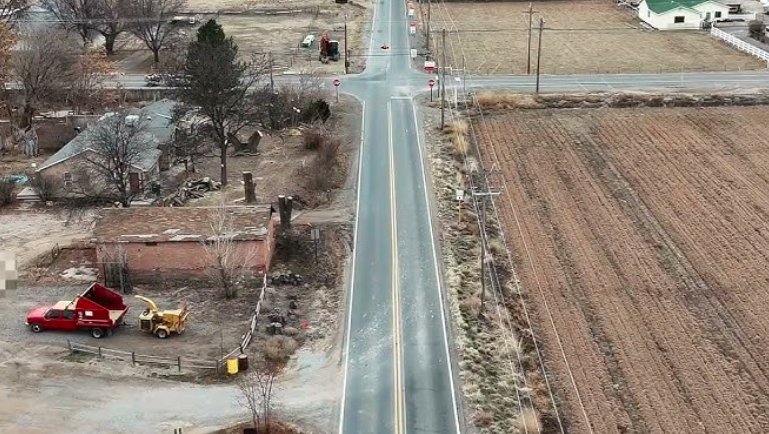A canal project in Fruita has sparked a heated debate over environmental preservation and government transparency. Some residents say they were blindsided by the work, while officials insist everything is above board.
Concerns Over Wetland Destruction and Transparency
A stretch of 19 Road in Fruita is under construction, with workers piping the Skiff Avenue Canal, also known as the Palmer Drain. While it may seem like routine infrastructure work, local farmer Paul Schultz sees a bigger issue—one that goes beyond the loss of a ditch.
“This isn’t just about one wetland—it’s about accountability,” Schultz said. He believes the project raises questions about how local government operates and whether private interests are influencing public decisions.
Mesa County officials, however, argue that the area in question is not a wetland.

Officials Deny Wetland Status
According to Mesa County Attorney Todd Starr, the site has never been designated as a wetland.
“A wetland has to go through a process and be designated. This particular canal, this particular area has never gone through that process, so it is not a wetland,” Starr explained.
Any concerns about wetland destruction, he said, should be taken up with the U.S. Army Corps of Engineers, the agency responsible for overseeing wetland impacts.
“We would never destroy a known wetland,” Starr added.
Permits and County Involvement
While some residents are questioning the county’s role in the project, Mesa County insists its involvement is minimal.
Schultz, however, says it has been difficult to get clear answers.
“It’s very hard to understand what’s going on, and we can’t tell what they’re doing,” he said.
County officials confirmed they issued a stormwater permit for the project but emphasized that primary responsibility falls on the City of Fruita.
- The project has a Mesa County Stormwater Permit (SW24-0075).
- It also has a CDPHE State Stormwater Permit (COR426074).
- The work includes installing concrete pipe for the Palmer Drain, an irrigation return drain managed by the Grand Valley Drainage District.
Trust in Local Government at Stake
For Schultz, the issue extends beyond environmental impact. He sees it as a test of public trust in local leadership.
“Unfortunately, this community has been undergoing tremendous development pressure. Despite going to City Council meetings and speaking publicly, and despite going to Mesa County Commissioner meetings and speaking publicly, there is very little transparency,” he said.
City officials have not responded to requests for comment on the controversy.
Conflict of Interest Concerns
Schultz also raised concerns about a possible conflict of interest involving Mesa County Commissioner Cody Davis. He questioned whether Davis has financial ties to the Iron Wheel subdivision and whether the project could benefit him in some way.
County representatives responded, stating that while Davis owns properties in the area, he has no authority over development projects within Fruita city limits. They also stressed that he cannot use his role as commissioner to influence those matters.
The Bigger Picture
Residents like Schultz say they aren’t just worried about one project—they’re worried about how decisions are being made.
“Fruita families deserve clean water, honest government, and a voice in decisions that affect our land,” Schultz said.
For now, the work on 19 Road continues, but questions about environmental protection, transparency, and public accountability remain unanswered.













